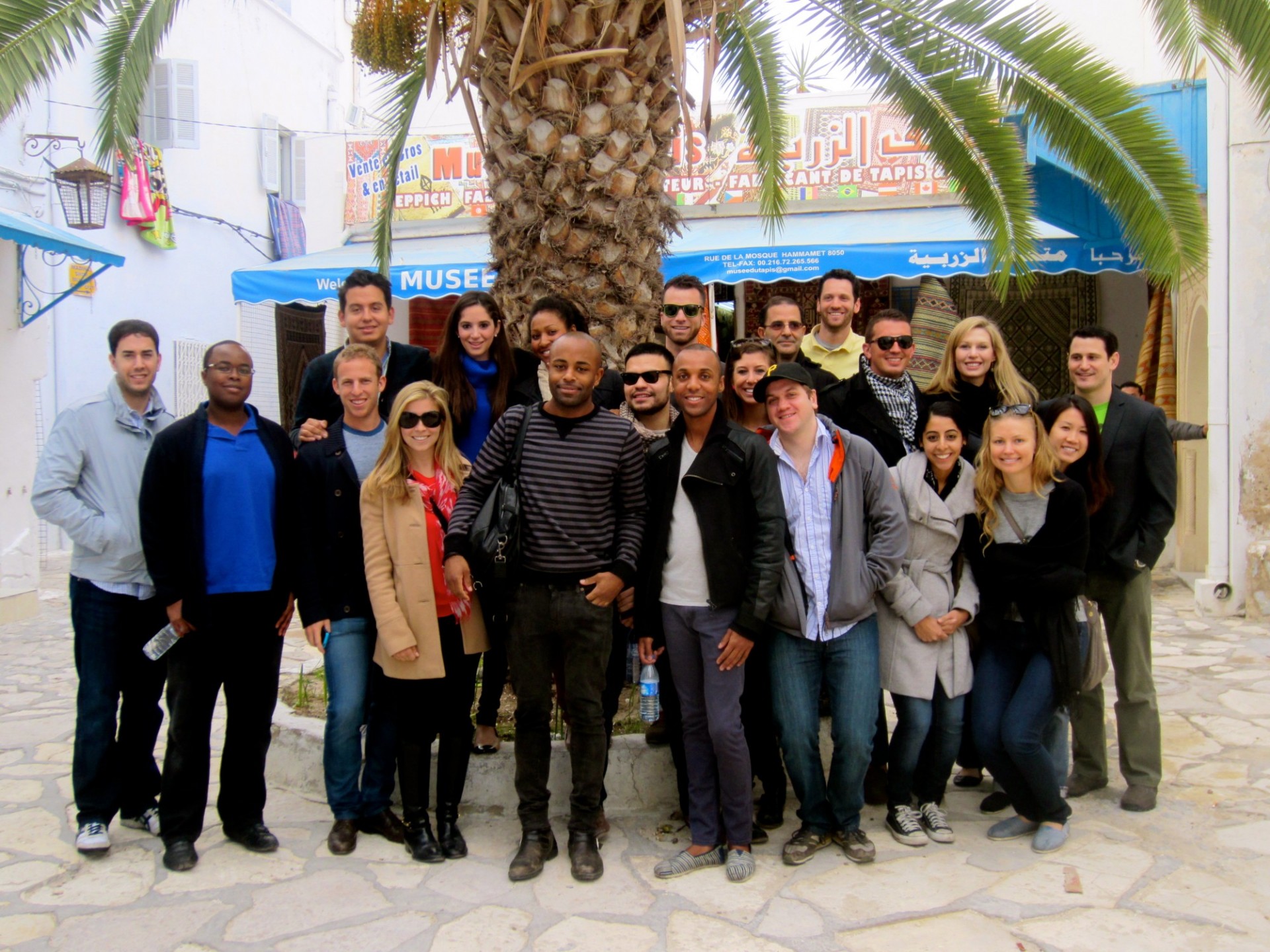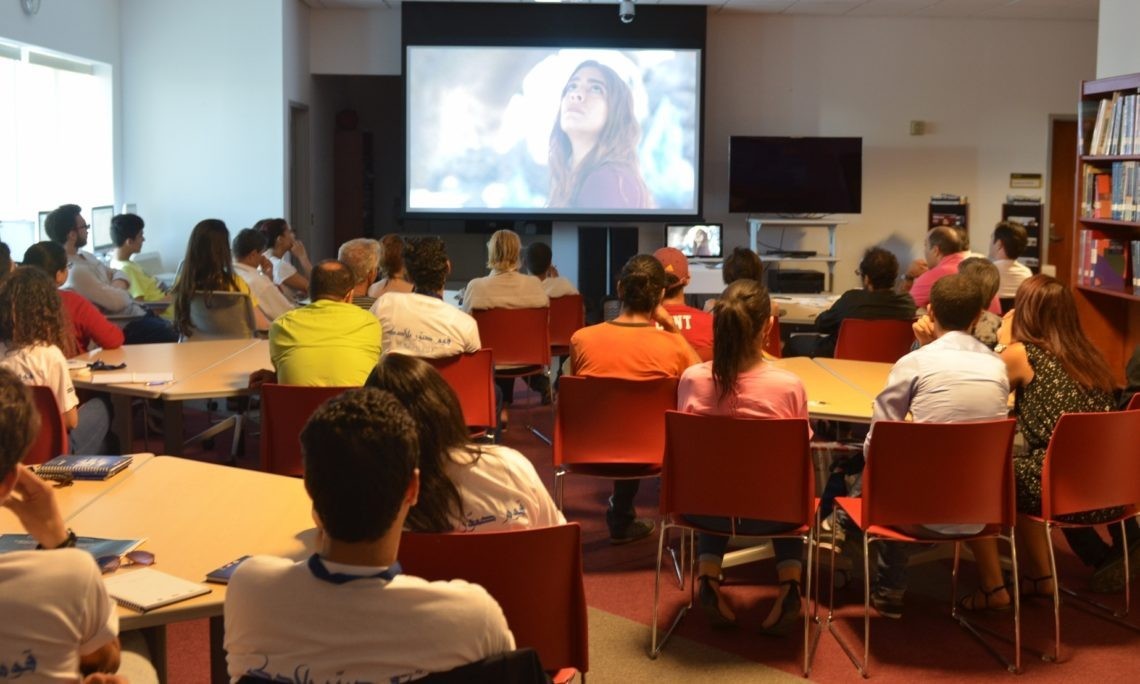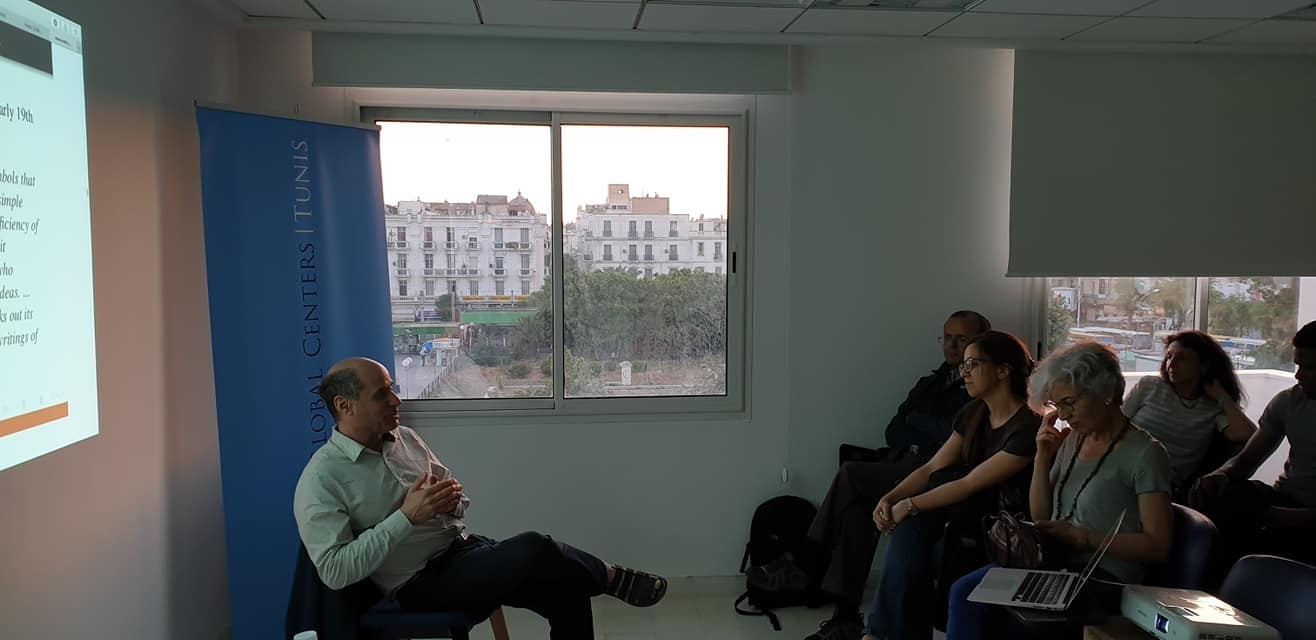Education Programs
Columbia Global Centers | Tunis belongs to an academic institution, it therefore comes with a strong education component. Through workshops, conferences, webinars, and other academic events, the Center aims to become a lighthouse of knowledge, dedicated to West and North Africans. It also aims to be the gate for Tunisia and West/North Africa to the Columbia community.
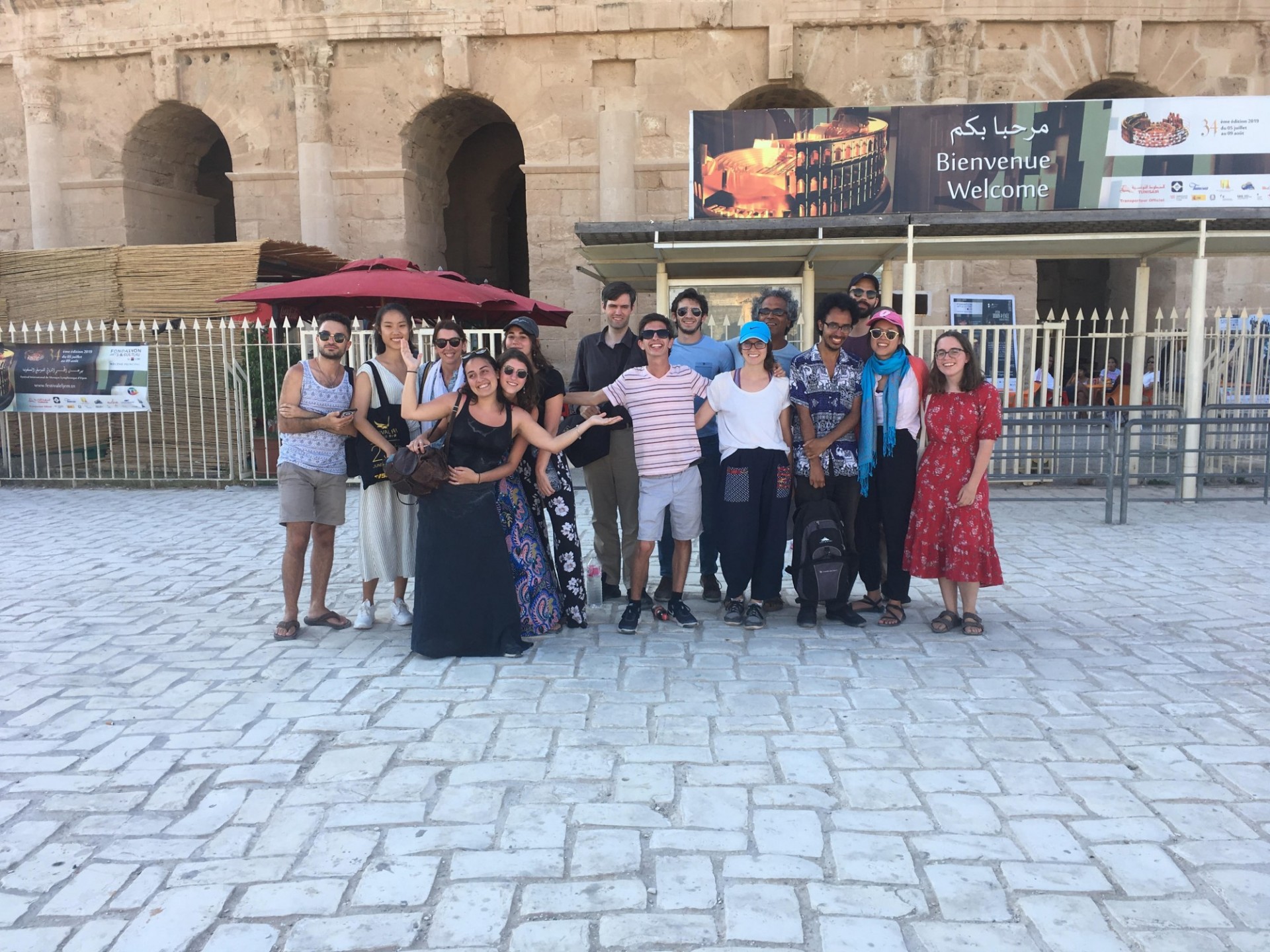
Since 2012, Professor Kamel Jedidi, CGC Tunis Faculty Advisory Committee member, and John A. Howard Professor of Business at Columbia Business School, has been conducting annual visits to Tunisia with a group of around 30 graduate students. It's a Chazen Institute funded program called 'Global Immersion'. Students learn about private equity, management, entrepreneurship, and other aspects of the economy of a North African country in transition. They also meet with Columbia alumni and get to discover Tunisia's culture and history.
In 2015, the Columbia Global Centers and the Office of Global Engagement (UGE) organized an intensive three-week summer program focused on democracy, entitled 'Columbia's Summer Program on Democracy in Tunis & Istanbul'. The program took place in Tunis and Istanbul and enrolled 14 Columbia students alongside 12 students from leading universities in Egypt, Lebanon, Tunisia, and Turkey. Taught by Columbia University political science Professor John Huber, the program focused on the concept of democracy, the challenges of democratic transitions and consolidation, and the tradeoffs associated with different ways of designing constitutions and organizing democratic institutions.
In 2018, the Center co-organized the 'Revisiting the Institutions of Learning in the city of Tunis' studio of the Columbia University Graduate School of Architecture, Planning, and Preservation (GSAPP), led by Pr. Ziad Jamaleddine. Through this studio, 15 GSAPP students investigated the evolution of the architecture of learning institutions in the 'Arab City' from the early modern period until today, taking Tunisia as a case study. The Street-Smart Studio's aim was twofold: mapping the physical evolution and emergence of the modern school building typology in the 'Arab City', and revisiting and intervening in this building type, having analyzed its shortcomings and latent potentials, relationships to the city, environment, and the communities it is intended to serve.
In 2019, CGC Tunis and CGC Amman implemented the 'Maghreb-Mashrek, East and West: Tunis and Amman in Historical Perspective', a nine-week summer program that allowed students to strengthen their skills in modern standard Arabic while learning about the history of the intersecting Maghreb and Middle East regions. Students spent the first four weeks of the program at Columbia's Global Center in Amman. Halfway through the program, they traveled to Tunis where they spent the second month. During the program, they took a year's worth of modern standard Arabic and received training in local Mashreq and Maghreb dialects. Watch the students' feedback here.
Covid provoked a hiatus of two years. Then, in 2022, Pr. Ziad Jamaleddine from Columbia's school of architecture (GSAPP) visited Tunisia, along with his MA class (13 students), for the 'The Right to the Dual City - an Investigation into Tunis' Dual City Urban Model' workshop. They studied the urbanism of the city of Tunis and learned about how tradition and modernity coexist. This is the third traveling studio executed by Pr. Jamaleddine in Tunisia since 2018.
In 2023, Columbia Global Centers | Tunis organized, in partnership with Columbia's Department of Art History & Archeology, the 'Ifriqiya: the Art and Architecture of Tunisia' seminar. A group of professors and graduate students from Columbia's Department of Art History & Archaeology as well as Columbia GSAPP traveled to Tunisia to work on onsite presentations and participate in discussions with Tunisian scholars. Selected Columbia graduate students enjoyed guided tours of Tunisian monuments, sites and museums, including Tunis, Carthage, El-Jem, Mahdia, Monastir, Sousse, Kairouan, and Reqada. They learned about Tunisia in its Mediterranean network, from the medieval up to the modern period and discussed questions around history, trade, and visual culture from particular moments of artistic interactions with Abbasid Baghdad and Samarra, Al-Andalus, Norman Sicily, southern Italy, the Habsburgs, and the Ottomans.
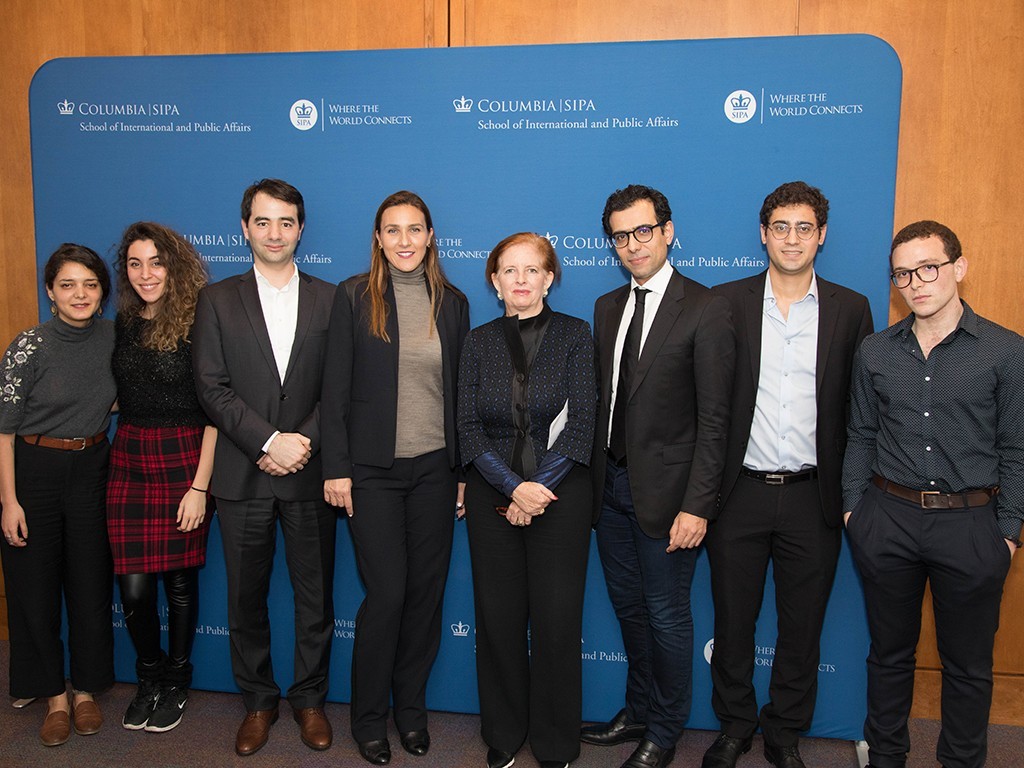
In 2017, CGC Tunis facilitated the implementation of the scholarship offered by the Rambourg Foundation of Tunisia to support Tunisian students of the School of International and Public Affairs (SIPA) at Columbia University. However, the Foundation was dissolved and the scholarship was discontinued.
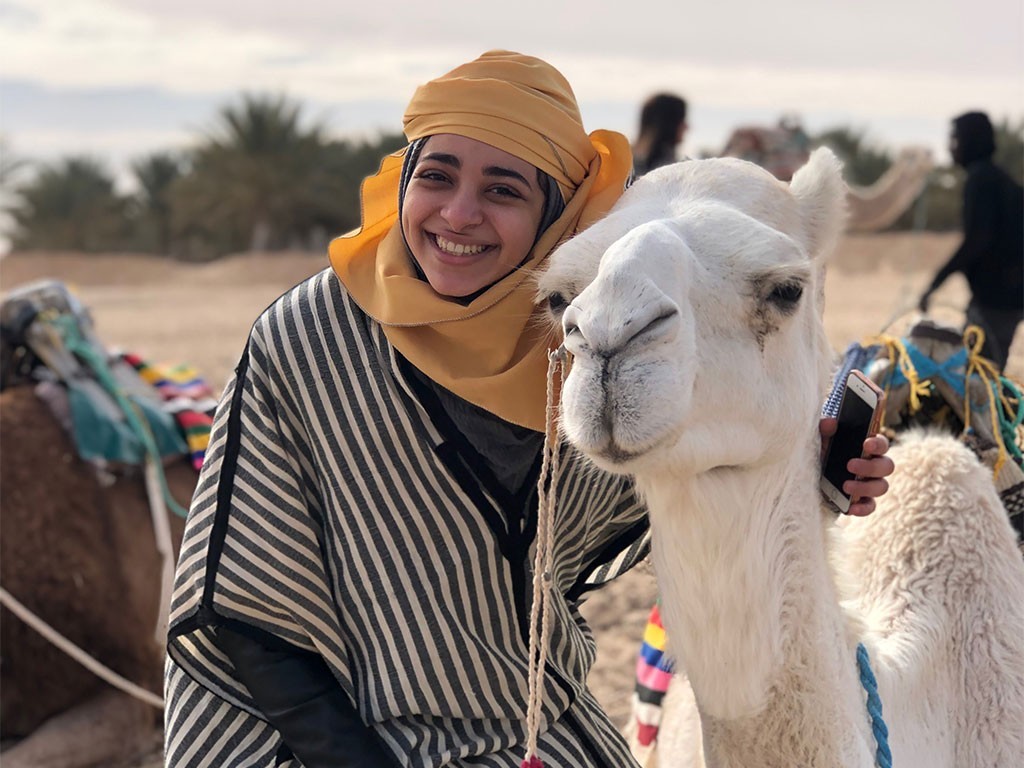
CGC Tunis is a host to the 'Kraft Global Fellows' led by the University Chaplain, Dr. Jewelnel Davis. The Fellows, undergraduate students at Columbia University, attend lectures and meetings about North Africa's religion and culture. They travel across Tunisia and learn about the country's history and society, meeting with scholars and religious leaders along the way.
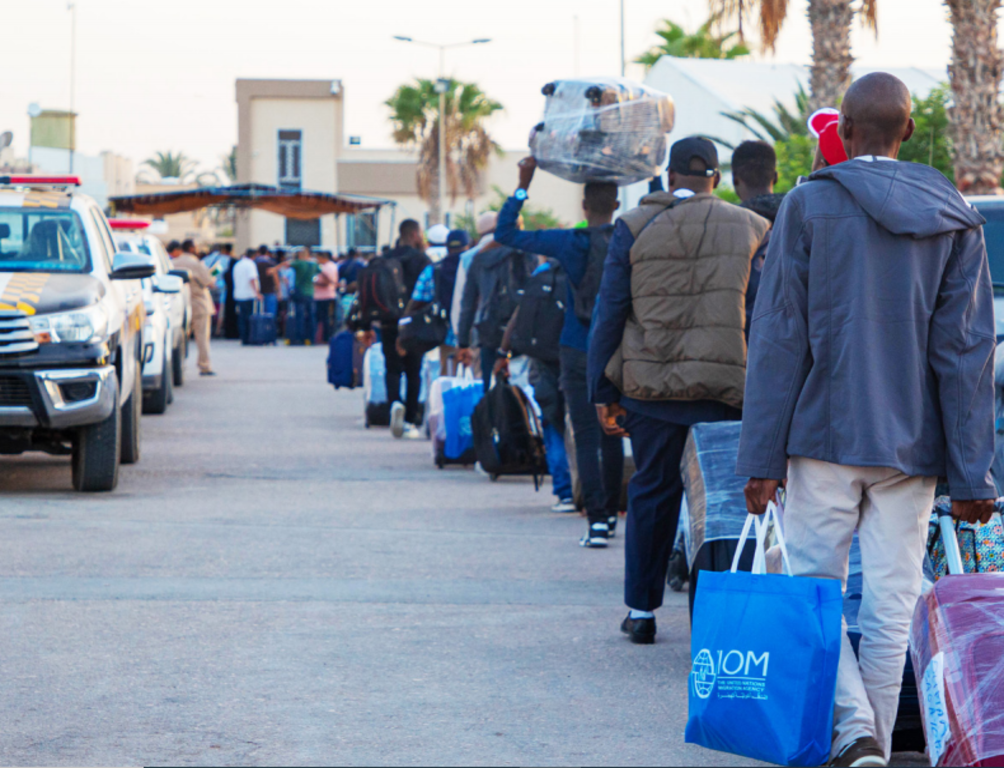
CGC Tunis helped to secure a number of capstone workshops for Columbia SIPA students, covering a diverse spectrum of subjects. These endeavors include projects such as "Exploring New Transaction Infrastructure in Africa Powered by Blockchain Technologies", "Analyzing the Circumstances of Long-Term Migrants in Post-2011 Libya", and "Sustainable Business Model for Career Centers for Better Employability of Tunisian Youth".
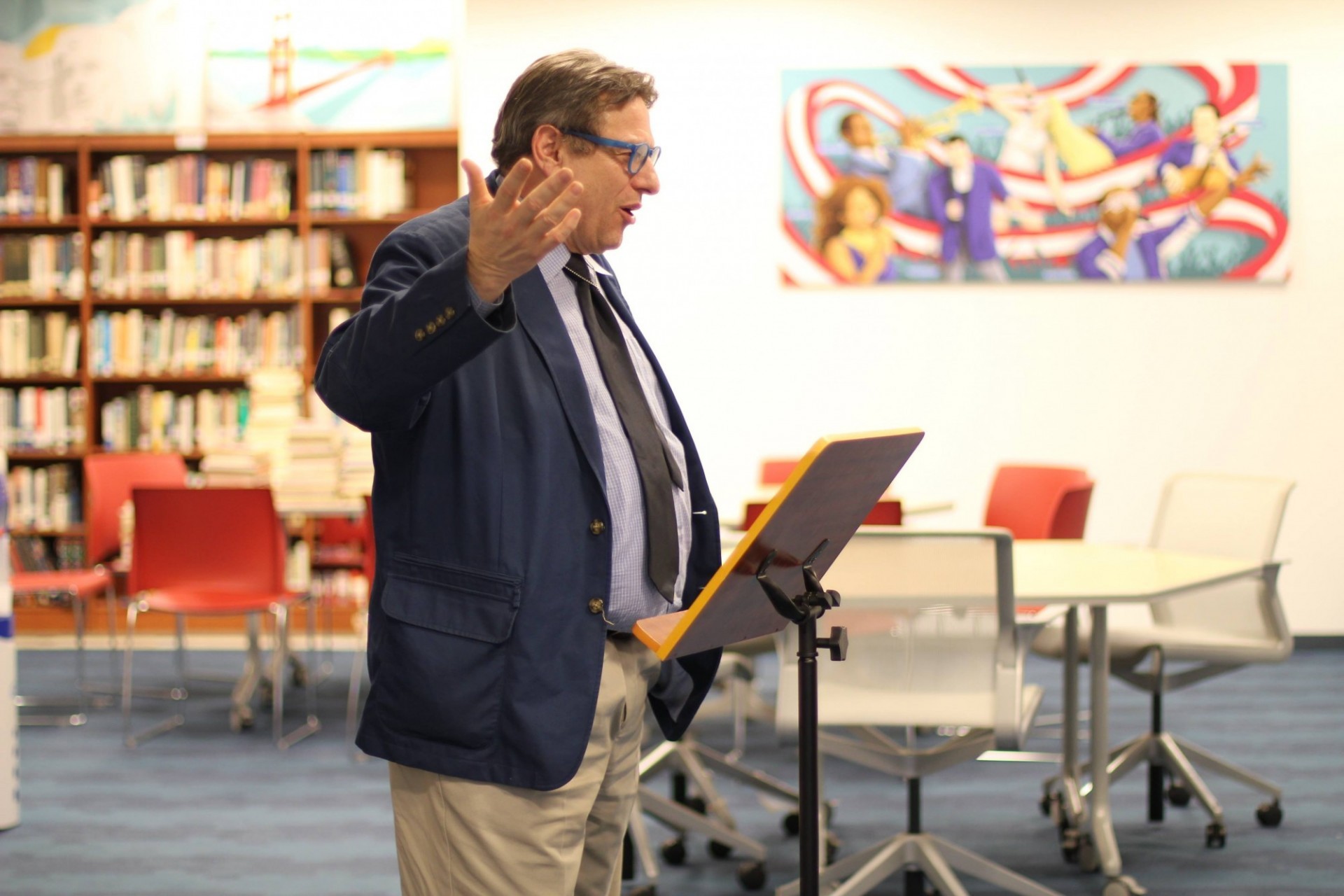
Professor Richard Peña, Professor of films studies at Columbia University and Program Director of the Film Society of Lincoln Center, has been a frequent guest of the Tunis Center, sharing his extensive experience in film studies with aspiring filmmakers, students, and cinephiles.
- In 2017, Pr. Peña led a three-day workshop festival on "Latin American Cinema" at L’Agora Cultural Center and gave a lecture about the history of short films in the American Center in Tunis.
- In 2018, he returned to CGC Tunis to teach a masterclass titled "Cinema and Anthropology" at the University of Carthage.
- In 2020, Pr. Peña spoke about "Social Justice and the Cinema" at different locations including the American Center in Tunis, Mad’Art Carthage and the University of Jendouba.
- In 2022, he examined 125 years of the history of anthropological cinema during a three-day Masterclass at the Anthropology Department of the Institut Supérieur des Sciences Humaines de Tunis.
- In 2023, Pr. Peña participated in two significant events: a three-day workshop on American Fringe Cinema at L'Agora Cinema, and a keynote lecture on American Avant-Garde Filmmaking at the University of Manouba.
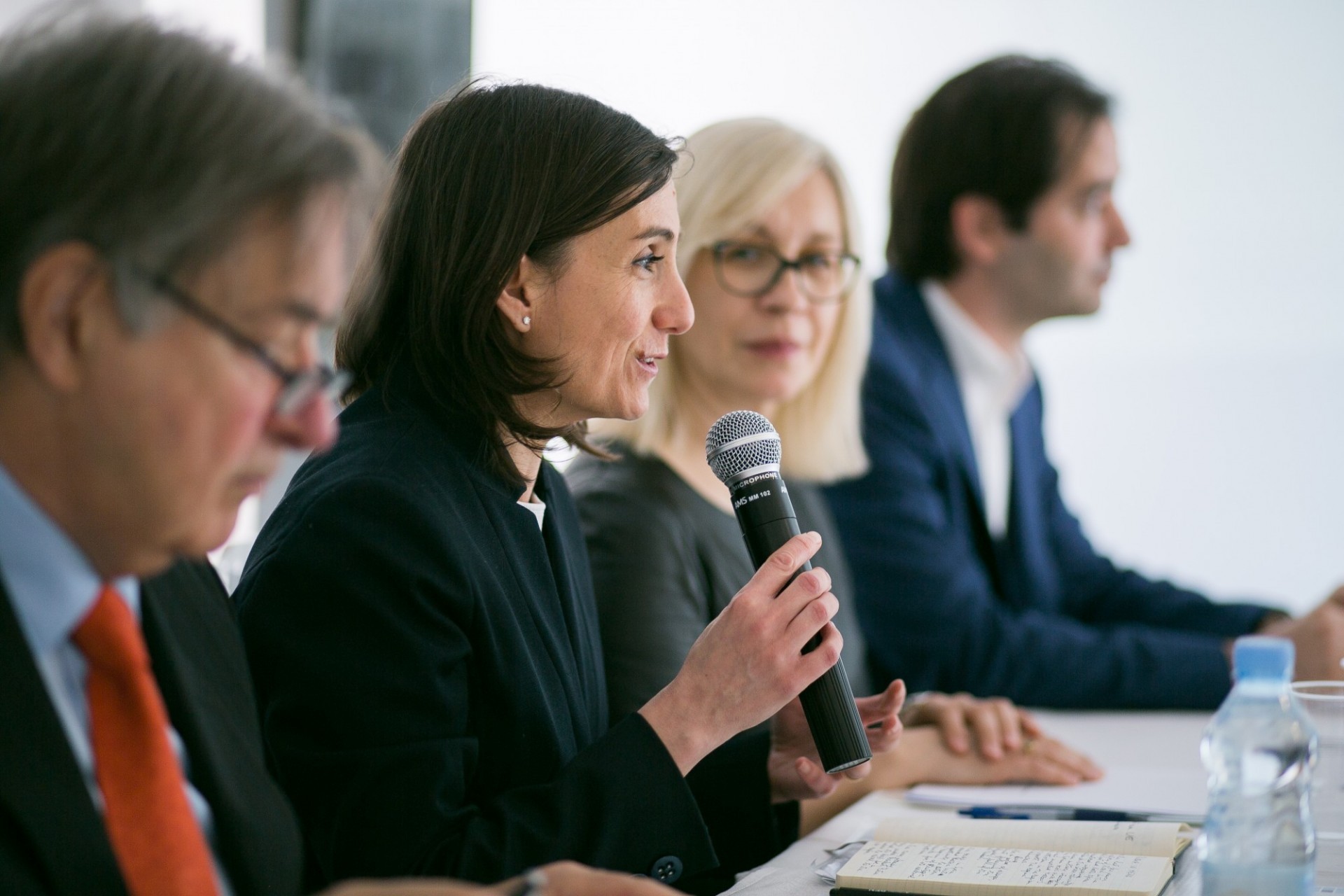
CGC Tunis has hosted a number of academic workshops, such as "Pluralisms in Emergencies: Movement, Space, and Religious Difference" in 2018, in partnership with the Institute for Religion, Culture, and Public Life (IRCPL) at Columbia University. The workshop was part of a series to examine pluralism in the context of the MENA crises, focusing on Tunis as an exemplar site of human commodity and capital mobility. The proceedings of the workshop appeared as a special issue of the Review of Middle East Studies, entitled Pluralism in Emergenc(i)es in the Middle East and North Africa (54: 2, 07/2021).
Additionally, in partnership with the Committee on Global Thought (CGT) at Columbia University and the Tunisian NGO Al-Bawsala, CGC Tunis organized a workshop on "The place of Youth in a Changing World", in June 2019. This workshop was one of many that CGT co-organized across the world. It was followed by long publications and an ongoing partnership between CGT and one of the workshop participants, who also became an intern at CGC Tunis.
In 2019, CGC Tunis and the Harriman Institute organized a workshop entitled "The Role of Russia in the Middle East and North Africa Region: Strategy or Opportunism?" to analyze the role of Russia in the MENA region, trying to shed light on elements of continuity and change.
In 2019, CGC Tunis hosted the "Africa Global Seminar - Le Dictionnaire des Intraduisibles" workshop together with the Institute of African Studies (IAS) at Columbia. The workshop, led by the IAS director Pr. Souleymane Bachir Diagne, with the participation of European, American, and Senegalese scholars, aimed at translating Barbara Cassin’s Dictionnaire des Intraduisibles from French to Wolof.
In 2022, after the two-year Covid hiatus, Columbia Global Centers | Tunis organized two executive training workshops, in partnership with the City Diplomacy Lab at Columbia Global Centers | Paris, for municipal officials affiliated to the International Association of Francophone Mayors (AIMF): "Mixed Migration and City Diplomacy in Africa" and "Digital Transition in Africa". Both workshops aimed to strengthen the professional skills of participants for designing and managing better strategies and projects upon their return to their municipalities.
In 2022 as well, CGC Tunis hosted 25 International and Tunisian scholars for "The Habsburgs in Tunis" workshop, organized in partnership with Columbia University's Department of Art History & Archeology, Getty Foundation, Harvard's I Tatti, and the University of Manouba's Laboratoire Régions et Ressources Patrimoniales de Tunisie.
In 2023, Columbia Global Centers I Tunis hosted, in partnership with Institut de Recherche sur le Maghreb Contemporain (IRMC), a workshop on the nexus between current affairs and climate change entitled “Now is not the Time”, followed by a discussion on our rooftop and a public lecture on the impact of conflict on olive cultivation.
The "Research Ethics in the MENA Region (REMENA) Workshop" also took place in 2023. This workshop is a PGIF led by Pr. Lisa Anderson, Special Lecturer and James T. Shotwell Professor Emerita of International Relations at Columbia | SIPA and member of the CGC Tunis Faculty Advisory Committee. It is dedicated to developing guidelines for the conduct of responsible, ethical, and constructive social science research in the Middle East and North Africa.
Another PGIF-linked event that CGC Tunis hosted in 2023 is the 'Youth-led Advocacy Initiative for Global Citizenship, Responsibility, and Cooperation' workshop. Co-organized by Columbia Global Centers | Tunis, Columbia Global Centers | Istanbul, SMU- South Mediterranean University (MSB- Mediterranean School of Business, MedTech- Mediterranean Institute Of Technology), Anadolu Üniversitesi, Boğaziçi Üniversitesi, and the Center for Sustainable Development at Columbia University, this workshop aimed to bridge the gap in educational programs and curricula on global citizenship and sustainable development.
Our work on Health-related topics continued as well with regular workshops and lectures in 2023. We did join our partner, Institut Pasteur de Tunis, and the global Pasteur Network to organize the 'Precision Medicine Academy', a 2-week transformative initiative that brought together experts, researchers, and practitioners to explore the cutting-edge advancements in precision medicine.
CGC Tunis also ventured into new themes in 2023. We teamed up with the University of Sousse - ENISO for a workshop on robotics and human health, bringing together researchers from Columbia University and Tunisia. We also collaborated with Pristini School of AI and aiphabet (A US-based non-profit) to organize a three-day 'Artificial Intelligence Boot Camp' for high school students in Sousse.
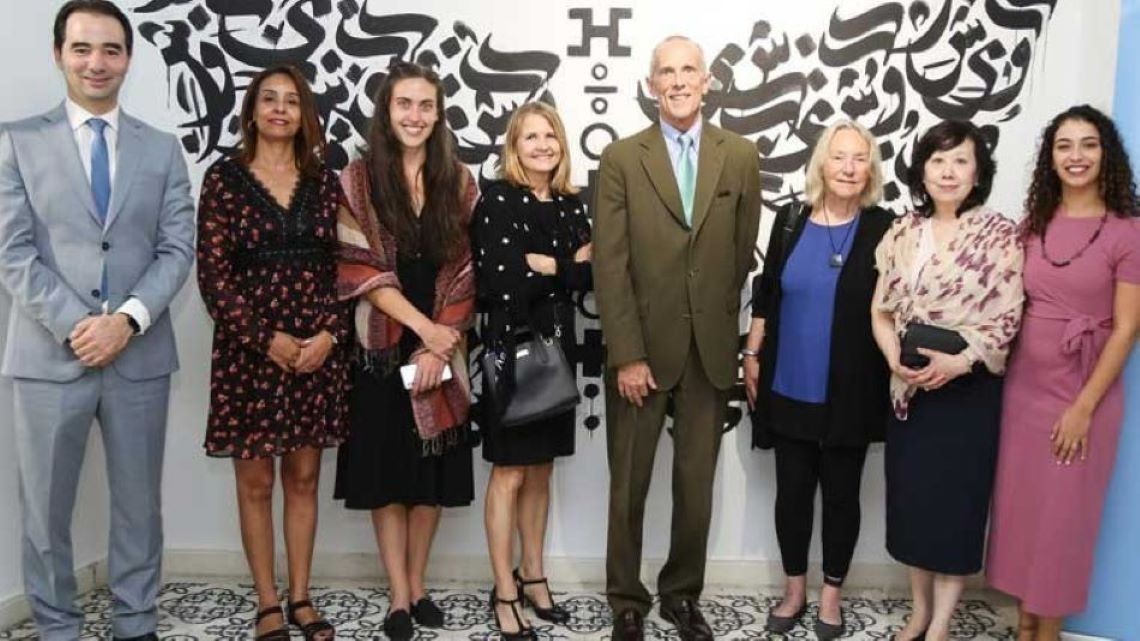
"TC-Tunisia Foreign Language Teacher Education Project" was a two-year initiative designed by Columbia Global Centers | Tunis in collaboration with Teachers College, the U.S. Department of State, and the Tunisian Ministry of Higher Education.
The goal of the project, which began in February 2021 and lasted until December 2022, was to build up the capacity of Tunisian educators and support young learners throughout Tunisia.
Columbia University and the Ministry of Higher Education developed a national English language curriculum model to train and equip two cohorts of 30 university teachers in ten graduate schools spread across the country.
As part of this project, participants received four professional development modules which equipped them with in-depth knowledge in planning and assessment, teacher education, integration of knowledge and practice, and more; these valuable tools helped them serve as mentors for future English teachers in elementary schools.
The program’s first year came to a close in December 2021, and a virtual graduation ceremony was held to commemorate. The second cohort for the program in Tunis joined in January 2022 and graduated in December 2022.
In 2022, participants of The TC-Tunisia Project (TCTP) were finally able to meet in person for a field trip around Tunisia and participated in a workshop at Columbia Global Centers | Tunis. On November 3, 2022, a reception held at Central marked the end of the program.
In late 2023, a special edition of "Teachers as Researchers: Exploratory Practice in Tunisian EFL Classrooms" was published, containing nine studies conducted by the project's participants -from Columbia and Tunisia- and reflecting their work during the duration of the project.
Click here to learn more about this project.
